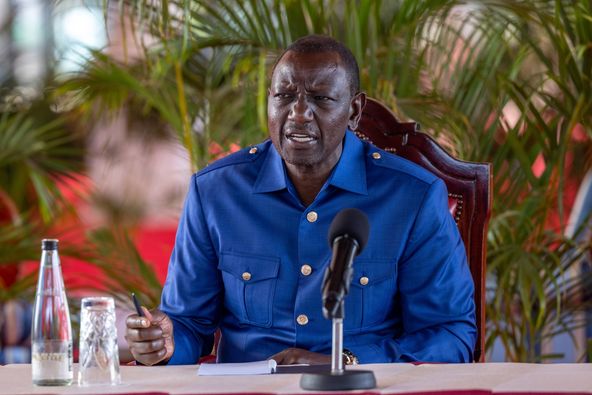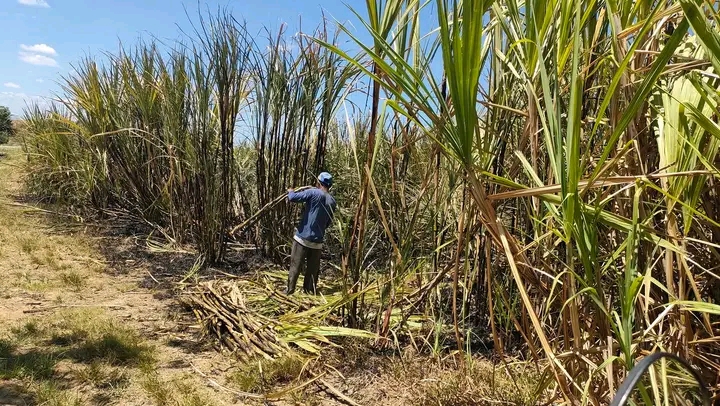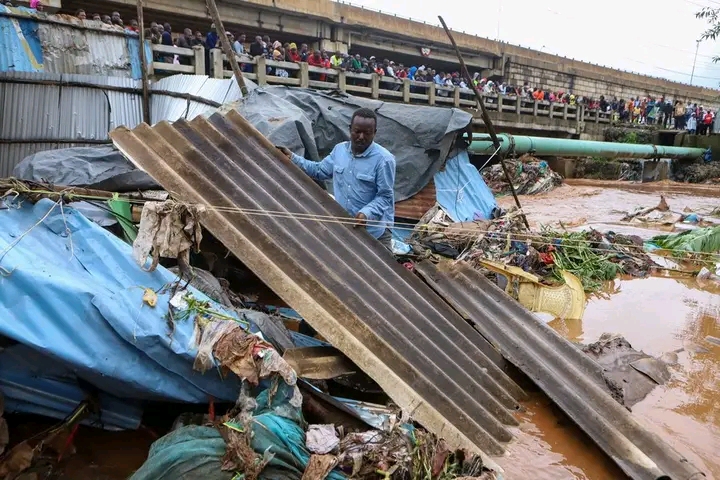By Patricia Mollyne Mataga
President William Ruto has barely been in power for two years, but just like his predecessors, he has faced several corruption scandals rocking his government within months in office.
Ruto was sworn in as the fifth President in September 2022 after winning the closely contested presidential election that was held in August 2022.
One of the major issues he pledged to address was corruption which remains rampant in Kenya.
On several occasions, the President has insisted that misuse of public resources is something he will not take lightly and has vowed to take action against culprits – even if they are his friends.
“We will do whatever it takes to fight corruption,” Ruto said in January 2024.
But despite these warnings, the Kenya Kwanza regime has already had several multi-billion graft scams.
We take a look at some of them;
Mosquito nets scandal
This is arguably the scandal that Ruto used to send a clear statement to public servants who were planning to plunder government resources.
The Ksh 3,7 billion scandal came to light after a global financer raised a red flag over a tender issued for the distribution of mosquito nets in the country.
The Ministry of Health and the Kenya Medical Supplies Agency (KEMSA) were the key players in the issuance of the tender.
Once the matter was brought to his table, the Head of State sacked Health Principal Secretary Josephine Mburu and suspended KEMSA Chief Executive Officer Terry Ramadani.
Ruto also send packing the entire KEMSA board.
Condemned sugar scandal
Reports emerged sometime in 2023, months after Ruto was sworn in, that sugar that condemned sugar had mysteriously disappeared from KEBS stores.
The same agency had declared the sugar unfit for human consumption but somehow found its way back to the market – repackaged in 1kg and 2 kg packets and sold to Kenyans.
A search for the sugar commenced immediately and 14,000 bags were recovered.
Tests on the recovered sugar confirmed that they had traces of mercury, copper, mould and yeast.
Several KEBS and Public Health officials were suspended pending a probe into the circumstances under which the consignment was allowed to leave the store where it was being held.
Ksh16.6b edible oil scam
The scandal involved the Kenya National Trading Corporation (KNTC) where the agency is said to have imported edible oil through single sourcing.
The Senate probed the matter as it sought to trace the whereabouts of the 12,500 tons of edible oil that KNTC imported in a bid to address high cooking fact prices.
Opposition leader Raila Odinga had claimed senior government officials walked away with Ksh17 billion that the government withdrew from the consolidated fund to finance the controversial deal.
Fake fertilizer scam
This is the latest scandal under the Kenya Kwanza regime. Farmers across the country reported that they had purchased fake fertilizer from the National Cereals and Produce Board (NCPB) under the subsidy program.
Initially, the Ministry of Agriculture dismissed the reports, insisting that all fertilizer sold at NCPB stores was of the expected quality.
However, the ministry later admitted that some of the fertilizer supplied did not meet the quality standards.
The Ministry went ahead to withdraw the said fertilizer from the NCPB stores and shut down the manufacturer’s factory in Thika. This is even as a probe into the company continues.
Last week, the government said it would sue the company should it be found that the fertilizer it supplied to farmers was substandard.
Several other scams have also been reported under the Kenya Kwanza regime, among them the Government-to-Government oil deal that the government had with Gulf Nations – Saudi Arabia and the United Arab Emirates (UAE).
The opposition claimed the deal was only meant to benefit a few individuals but the government instead was to address the fuel price issue.
Ghost payments of millions of shillings to health facilities by the defunct National Hospital Insurance Fund (NHIF) are another scam.
As a result of this scandal, NHIF managers for Nairobi and Meru were suspended.
Has President Ruto done enough to curb runaway corruption in public institutions?





